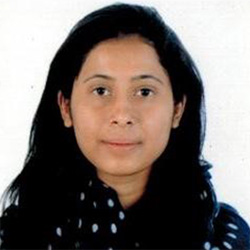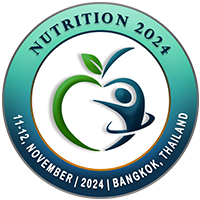
Ganga Marasini
IIHMR University, NepalTitle: Barriers affecting Adolescent Iron and Folic Acid (IFA) Supplementation under School Health Program in Nepal
Abstract
The Government of Nepal initiated Iron Folic Acid (IFA) supplementation, on weekly basis for 13 weeks biannually under school health program at schools, is available to the adolescent girls. But the situation is very grim as the Nepal Demographic & Health Survey (NDHS) data 2022 revealed that the anemia prevalence was highest (39%) among the adolescents 15-19 years age-group compared to other women of reproductive age group, and IFA supplementation coverage was only 17%. To assess this situation, this study – with an objective – attempted to identify the barriers in low IFA coverage among adolescent girls in Nepal and provide suggestive actions to improve those barriers. A review of surveys, reports and guidelines of Nepal and existing evidence were conducted to extract prevalence data and barriers affecting low IFA coverage. The review of existing evidence revealed that there was very rare research conducted to assess the barriers in low IFA coverage among adolescent girls in Nepal context. Evidence from other countries, such as Ghana, revealed some factors such as the ability to make up a missed IFA distribution, educator training, and the educators experiences and perceptions strongly influence IFA consumption. Considering the education system in Nepal, these barriers from other countries likely have the potential to increase IFA coverage. The Annual report 2021-2022 by Department of Health Service, Nepal laid down challenges like limited access to healthcare facilities and education in remote and rural areas, lack of co-ordination between school and health facilities, lack of awareness among adolescent girls and their families about the importance of taking IFA supplements, and cultural barriers. The out-of-school adolescents are falling behind in receiving the IFA supplantation service as 10 percent adolescents in 2017 were out of school. This study recommends promoting research, in addition, training to the teachers, parent education, inter-sectoral coordination and continuous program monitoring are essential in improving IFA coverage among adolescent girls in Nepal. Female community health volunteers can be mobilized to reach out of school adolescents
Biography
Ganga Marasini has completed her Bachelor of Public health degree from Pokhara University and is currently pursuing her Master of Public Health (Implementation Science) under WHO TDR postgraduate training scholarship. Ganga has more than a decade of experience in public health programs like immunization, Safe motherhood, Family planning, Nutrition, communicable and non-communicable diseases, pandemic management as well as health commodity logistic management with the Ministry of Health and Population, Government of Nepal. She has extensively worked on the remote areas of Nepal. Her expertise is program implementation, data management, community engagement, monitoring and evaluation and implementation research.

